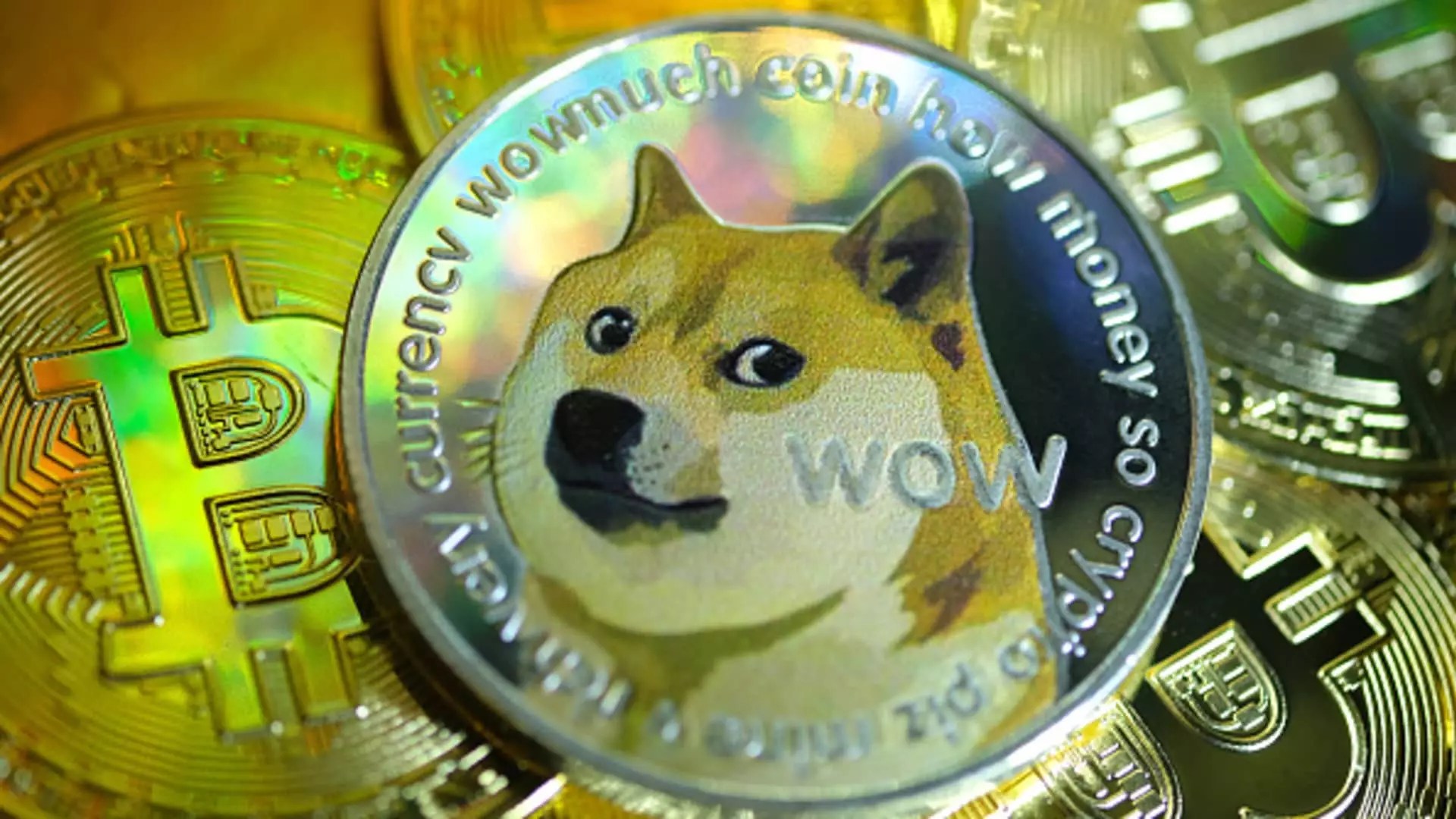In a surprising turn of events, the Securities and Exchange Commission (SEC) announced that it does not classify most meme coins as securities under U.S. federal law. This statement is not just a routine regulatory update; it’s a transformative moment for a sector that many have dismissed as mere speculation. By asserting that meme coins are “more akin to collectibles,” the SEC has implied that these digital assets do not warrant the same level of scrutiny or regulation that traditional securities face. This decision could serve as a double-edged sword—providing newfound freedom for investors while simultaneously exposing them to potentially vast risks.
The Appeal of Meme Coins
Meme coins’ appeal lies in their whimsical nature and meme-driven culture, which has captivated a wide array of investors, from the seasoned traders to enthusiastic newcomers willing to gamble their savings. Unlike established cryptocurrencies such as Bitcoin or Ethereum, which offer tangible benefits and applications, meme coins thrive on hype, celebrity endorsements, and social media buzz. The SEC’s acknowledgment that they possess “limited or no use or functionality” cuts to the heart of their allure and reflects a deeper critique of the cryptocurrency market: are we riding a massive wave of speculative mania?
The new guidance is particularly salient following a dramatic rise and subsequent crash of several meme coins, which often mirrored the unpredictable atmosphere of the recent political climate. These fluctuations indicate a volatile market reliant on the whims of public sentiment rather than intrinsic value or utility. In an age where investment strategies rely on robust data and analysis, meme coins represent a desperate leap into the abyss—a gamble that may be unwise.
A Promised Land for Investors?
While some view this regulatory clarity as a boon for the beleaguered cryptocurrency market, it’s essential to recognize the inherent dangers involved. The SEC’s declaration gives a green light to investors to dive into a landscape fraught with volatility, where millions can be made or lost in the blink of an eye. In this context, the statement from the SEC may embolden those who thrive on risk but also clouds the judgment of those who may not fully appreciate the implications of investing in these digital assets.
Crypto attorney Ishmael Green has dubbed the SEC’s declaration “the clarity that the digital asset space has been demanding for years.” However, one must wonder—does clarity equate to safety? By categorizing meme coins outside the purview of securities law, the administration may inadvertently create a Wild West scenario that fosters unchecked speculation and could expose unsuspecting investors to significant financial harm.
The Culture of Collectibles vs. Investment
Meme coins are celebrated not just as digital assets but as cultural icons that encapsulate the spirit of internet culture. They represent both a celebration of creativity and a rebellion against traditional financial systems. Yet, this same culture seems to bypass the inherent risks that come with such investments. Just as trading baseball cards or vintage toys can be thrilling yet fraught with peril, the world of meme coins operates on a similar premise: emotional investment outweighs rational analysis.
Despite their non-security status, the reality is that meme coins do not provide returns in the same way that stocks or bonds do. Without yield, ownership of these tokens provides little more than the potential for speculative gains. It’s a seductive proposition that appeals to those eager to establish a foothold in the crypto world but mandates a firm understanding of the risks involved.
The Future of Meme Coins and Regulation
As the SEC’s move reflects an evolving regulatory stance towards cryptocurrencies, the looming question is what the future holds for meme coins specifically. This regulatory shift, while providing breathing room for meme enthusiasts, also poses a significant question: how will this affect the sustainability of such assets? Will we witness an easing of market volatility, or will the lack of regulation pave the way for more drastic fluctuations that characterize the meme coin market?
In a rapidly changing landscape, exchanges like Coinbase and Robinhood that thrive on trading volume may benefit in the short term, but the potential for backlash looms large. As retail investors continue to dive into meme coins with little regulatory protection, the potential fallout could bring waves of criticism and reevaluate the SEC’s current stance on decentralized finance.
Navigating this intriguing yet perilous terrain requires a level of discernment that may be lacking among new entrants. The SEC has provided clarity at a time when the market demands it, yet clarity without caution risks destabilizing what is already a precarious status quo in crypto.


Leave a Reply